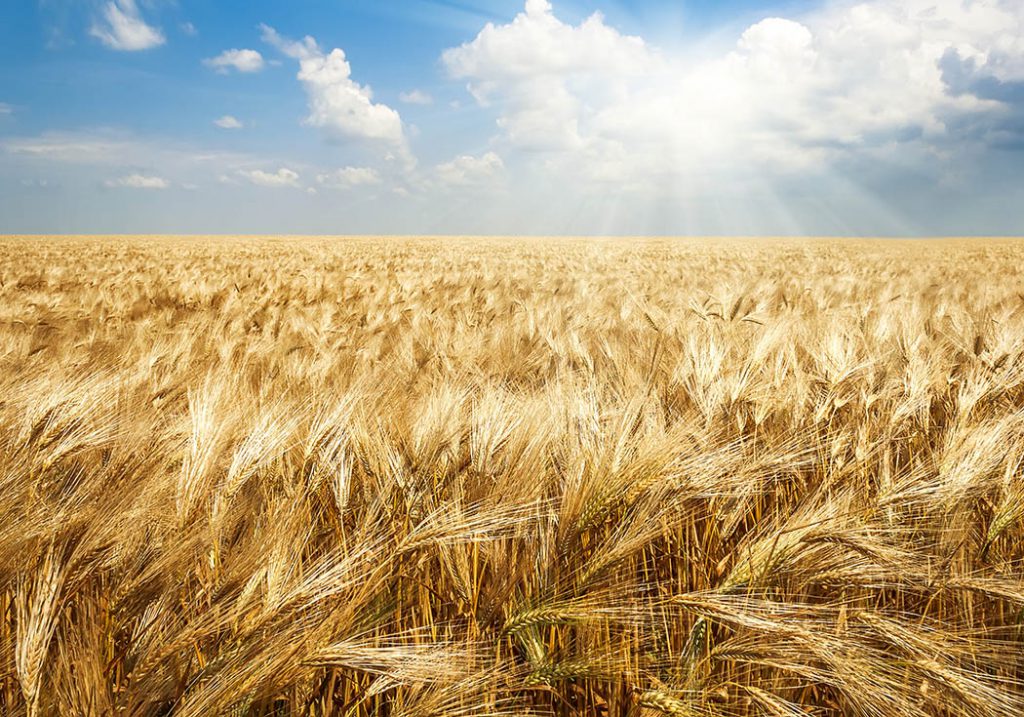Study Finds Ontario Farmers are Leaders in Cover Crop Adoption

More Investment Needed for Cover Crop Innovation in Ontario
GUELPH, ON (December 07, 2021) – Researchers at the University of Manitoba (UM), working in collaboration with the Ontario Cover Crop Steering Committee, have shared the results from the 2020 Ontario Cover Crop Feedback Survey, the largest survey of its kind in Canada based on the number of responses received. The survey captured a snapshot of grower observations from incorporating cover crops into their practice.
Cover crop use in Ontario has a long history. The practice has increased in recent years. The Ontario Cover Crop Action Strategy, created in partnership with the Ontario Agricultural Soil Health and Conservation Strategy, has set new goals to facilitate widespread adoption of cover crops in Ontario.
Of the 520 respondents that grew cover crops in 2020, 91 per cent observed benefits from growing cover crops. The observations include:
- 68 per cent of farms saw improved soil health
- 59 per cent observed less soil erosion
- 57 per cent reported seeing increased soil organic matter
More than three quarters of farms reported benefits within three years of adopting cover crops.
“Ontario continues to innovate in farming practices that benefit the environment and adopt cover cropping as one strategy. We know that to continue to build on these successes and continue to help Ontario and Canada meet climate change goals, farmers will need support for these practices to help overcome the barriers that farmers face in their implementation,” said Marty Vermey, senior agronomist at Grain Farmers of Ontario and Chair of the Ontario Cover Crop Working Group.
The study showed some challenges in adopting cover crops. The most common challenges included poor cover crop establishment, the late harvest of a cash crop preventing cover crop planting, and the additional costs associated with growing a cover crop.
Although the expansion of cover crop adoption in the province is an indication of the benefits that some farms experience with this practice, barriers that hinder widespread cover crop adoption still exist. This makes it an important time to hear from Ontario farms about the benefits and challenges they experience, their needs for research and knowledge transfer, and to get feedback on what could enable wider adoption of cover crops in Ontario.
“It is an important time to hear from farmers about their needs for research and knowledge transfer,” said Callum Morrison, Graduate Student and Report Author, University of Manitoba.
The 2020 Ontario Cover Crop Feedback project was developed to provide information to farmers, agronomists, researchers, policy makers, and government organizations that will play an important role in the future of cover crops in Ontario.
The project was a voluntary online survey of Ontario farms, targeting both farms that did and did not grow cover crops during the 2020 growing season. Farms of all types and sizes in Ontario were invited to take part. A variety of questions were asked to farmers who grew and did not grow cover crops. Both groups were asked about farm characteristics, motivations, what would enable cover crop use, and where farms source information.
“Ontario‘s Certified Crop Advisors are pleased to have participated in the survey recruitment and review processes of the Cover Crop Report,” said Ken Currah, Certified Crop Advisor and Ontario Cover Crop Working Group member. “We look forward to working with our farmer customers to transfer this knowledge and providing our advisory services in support of their farm management decisions around soil health improvement, environmental stewardship, and continued cover crop adoption.”
In total, the survey collected responses from 731 farmers, 520 of which grew a cover crop in 2020 and 211 did not grow a cover crop in 2020.
“This survey was made possible by the great support of Ontario farmers. They were asked to provide their feedback about what was occurring with cover crops and the response was tremendous,” said Paul Hoekstra, Vice-President of Strategic Development, Grain Farmers of Ontario. “We thank the farmers, researchers, and the Ontario Cover Crop Steering Committee for the incredible work they have done to represent the needs and voices of Ontario‘s grain farmers to highlight the areas where we can continue to provide the best support.”
The report can be accessed at the Grain Farmers of Ontario website, here
Grain Farmers of Ontario, on behalf of the Ontario Cover Crop Steering Committee, and in partnership with the University of Manitoba, will host a webinar on the Cover Crop Report findings on December 14, 2021 at 8:30 a.m. EDT. Register here
Backgrounder: For more detailed information on the report and cover crops, please click here.
Contacts:
Victoria Berry, Manager, Communications
Grain Farmers of Ontario
226 820-6641
vberry@gfo.ca
Anne Verhallen
Soils Management Specialist
Ontario Ministry of Agriculture, Food and Rural Affairs
anne.verhallen@ontario.ca
519 359-6707
Callum Morrison
Graduate Student
Department of Plant Science University of Manitoba
morris51@myumanitoba.ca
431 733-3335

